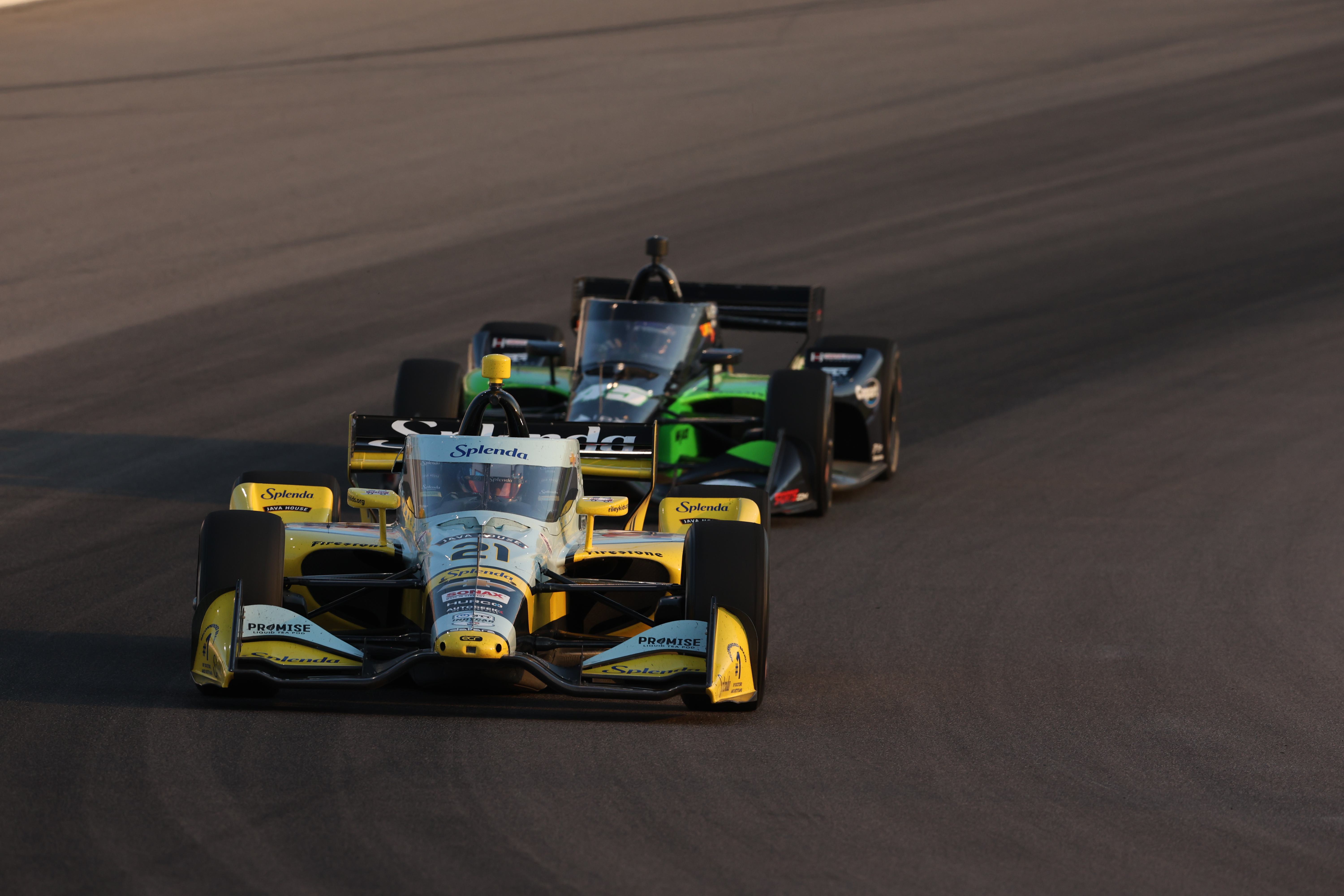Core Characteristics of Formula One: The “never-give-up” attitude
- Marco Noguier
- Apr 5, 2023
- 4 min read
Written by Marco Noguier, Edited by Vyas Ponnuri
The upcoming series "Core characteristics of Formula One" seeks to take a look at the qualities that lie at the essence of the Pinnacle of Motorsport. Through past instances and famous quotes, writers will aim to explain why each characteristic forms the essence of Formula One. Commencing our series/continuing our series is Marco Noguier writer at Divebomb, telling us about the never-give up spirit in Formula One
"I’ve always believed that you should never, ever give up, and you should always keep fighting even when there’s only a slightest chance." said Michael Schumacher, seven-time World Champion. With this one quote, he summarised one of the most important characteristics of Formula one if one wants to succeed : the never-give-up spirit.
Formula one is a challenging sport, not just for the drivers and pit crew, but also by its harsh nature. Teams and drivers can face terrible moments that can go from losing a victory in the final laps of a race, to even having a below-par season. But the most important thing here isn’t how many times you fall, but how you get up and fight back.
The sport has seen many instances of drivers battling setbacks of various degrees to make heroic comebacks and redeem themselves. You don’t need to look too far back into F1’s history to find such instances, with Sergio’s Perez comeback at the 2020 Sakhir Grand Prix a significant example. At the end of the 2020 season, Sergio Perez hasn’t signed a contract for the upcoming 2021 season, despite a strong 5th place in the drivers standings. The Sakhir Grand Prix was the penultimate round of the season, and it was time for the Mexican driver to prove his worth in Formula One.
The start of the race saw Sergio Perez involved in a crash with Max Verstappen and Charles Leclerc, sending the Mexican from P5 to dead last. Despite the setback, Perez fought back and started climbing up the field, eventually winning the gruelling race, exceeding all expectations. This victory was his first in Formula One after 190 races, a record for the sport. Two weeks later, Sergio Perez signed for Red Bull, and is now a five-time Grand Prix winner.

Earlier that year, another driver’s redemption arc reached a sensational conclusion. Pierre Gasly’s Formula One tale has seen many twists. A strong debut season for Toro Rosso in 2018 saw the Frenchman promoted to the senior Red Bull Racing team for the upcoming 2019 season, to replace Renault-bound Daniel Riccardo.
Unfortunately, Pierre struggled in the pressure within the team, and couldn’t live up to Red Bull’s expectations. He was demoted mid-season to Toro Rosso. But the nightmare didn’t end here for Pierre, as his childhood friend and roommate, Anthoine Hubert had a fatal crash during a Formula 2 race. Despite this terrible blow, Pierre drove superbly on Sunday to finish eighth. The Frenchman showed strong resilience, and later that same season, he climbed on the podium at the Brazil GP as his Red Bull replacement, Alex Albon limped home on a P15 after being spun out by Lewis Hamilton.
Gasly remained at Red Bull's sister team for the 2020 season. But the Frenchmen didn’t give up, and drove superbly all-season long. He capped off his comeback, seizing the opportunities and winning the 2020 Italian Grand Prix, after a superb defence against Carlos Sainz lasting over 20 laps. Despite a Red Bull return not on the cards, Pierre Gasly became a hero in France, and now drives for the homegrown Alpine team. Yet, most importantly, he honoured Anthoine Hubert’s promise to ‘prove them wrong’.

While Perez and Gasly had their supreme comebacks, the most heroic of the “never-give up” moments still remains Niki Lauda’s comeback after a near-death crash during the 1976 German Grand Prix. The start of the season was dominated by Lauda and Ferrari, and when Formula One arrived at the fearsome Nurburgring Nordschleife, the Austrian had a 31-point lead on Jody Scheckter, and 35-point lead on championship rival James Hunt, dominant in those times.
Unfortunately, during the race Lauda experienced a terrible crash, losing control of his Ferrari on lap two, crashing into the barriers, and the car bursting into fire. Lauda was helped out of the car by other drivers, but had severe burns and people feared for his life. A priest was even sent to the hospital to read last rites. Lauda defied all odds and survived. Four weeks later, at the Italian Grand Prix, to everyone’s surprise, Niki Lauda was back in the car, despite not having healed completely. The Austrian driver finished the race at a heroic fourth, proving he was one of the greatest drivers of this sport.
But why are those events so important to us? Why is it a core element of Formula One? First of all, F1, and sport in general, is all about surpassing yourself, testing your limits as well as the car’s limits. Sometimes, a driver might go over the limit, causing a crash or a DNF, but failure isn’t as bad. In the words of Niki Lauda “From success, you learn absolutely nothing. From failure and setbacks conclusions can be drawn.”
The goal is to improve after that failure, it can be a quick response, as shown by Sebastian Vettel’s comeback to win the title at the 2012 Brazil Grand Prix. Having been spun out on the first lap, he drove home to sixth in a damaged car to claim his third world championship. But it can be a long and hard fight like that of Perez, taking 190 races to get his first victory. And these events can inspire us Formula One fans as well in our personal lives, to learn from the setbacks and failures to fight back harder, and become better versions of ourselves.










Comments